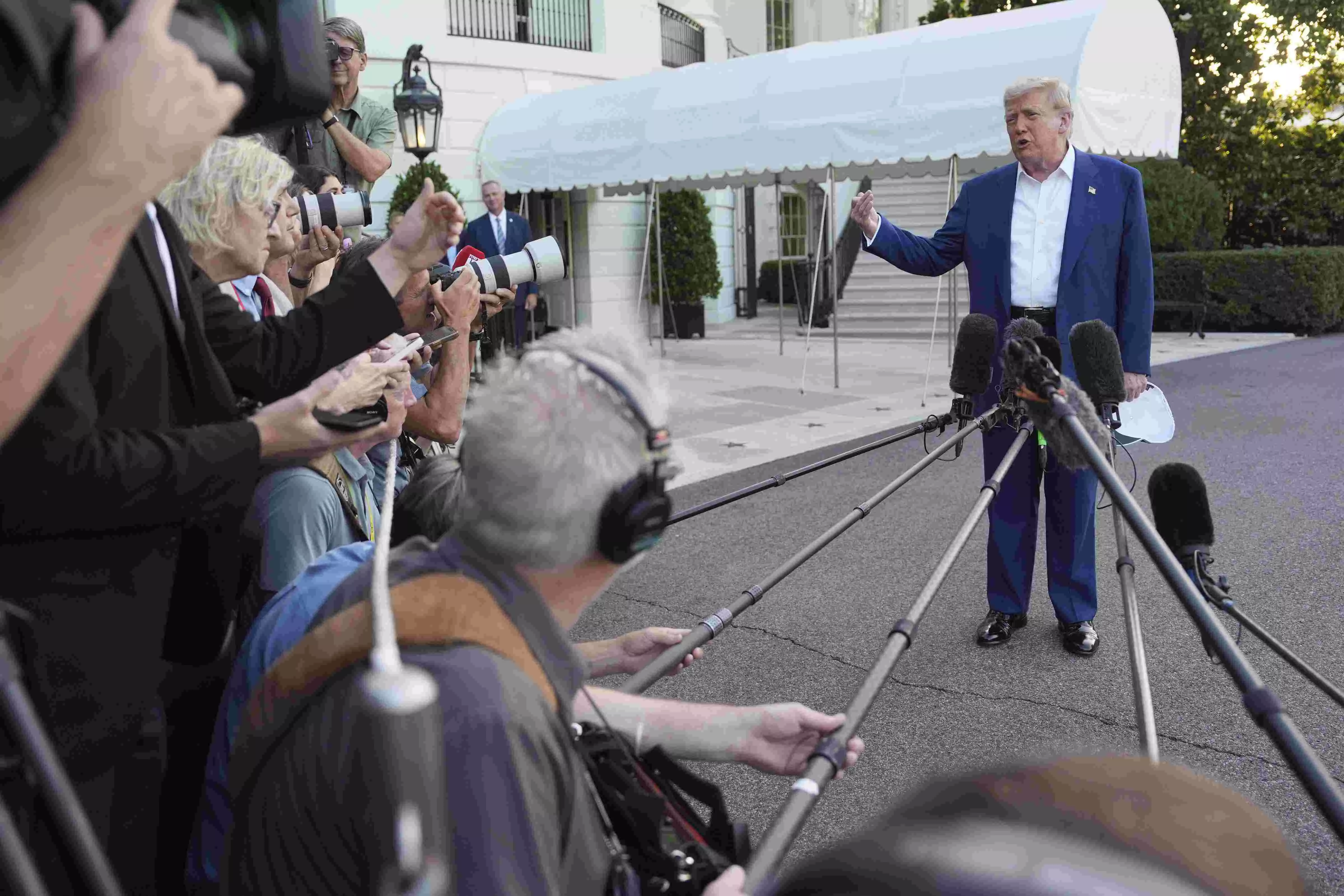Fragile Peace

Hours after President Donald Trump triumphantly announced a ceasefire between Israel and Iran, bombs and air strikes again cascaded the skies over the conflict zone. The ‘12 Day War’—as Trump put it—has now entered its 13th day, and the world could do nothing but watch with despair as yet another fleeting promise of peace crumbled into ash and acrimony. Trump’s assertion—stated and intended—of being a peacemaker has also taken a backseat. Lately, US’ Trump, just like China’s Xi Jinping, has shown keen interest in bringing peace to conflict-torn regions. This is perhaps a new kind of expression of soft power and influence—a new battleground to assert supremacy on the global stage. Trump, like on other instances, appears to have failed on this occasion as well. Incidentally, his failure comes after his self-claimed success in brokering peace between India and Pakistan—the South Asian neighbours who were themselves willing and negotiating to halt the war.
However, the initial violations of ceasefire between Israel and Iran have more serious (read less comic) aspects to look into. Israel’s airstrikes on Tehran, launched barely hours after the ceasefire was announced, have thrown the already volatile region into deeper chaos. Tel Aviv claims Iranian missiles were fired post-ceasefire—a claim which Tehran has denied outrightly. On the contrary, it has counter-alleged that Israeli aggression continued beyond the agreed truce hour. In this haze of accusation and retaliation, facts have become casualties, and truth appears to be obscured by propaganda and spin. It must be noted here that hardline politicians in Israel—a breed which also includes Benjamin Netanyahu—are against the ceasefire. They are in favour of going full throttle against ‘dangerous’ Iran. Iran, on its part, is indeed a mysterious and hardline ideological state, and its denial of violating the ceasefire may not be as straightforward as it looks on the surface. Nevertheless, in this sea of ambiguity, what is clear as crystal is that the ceasefire has approached the verge of collapse. And with it, the hopes of millions on both sides who had momentarily dared to believe the war might be over, have come to be eclipsed by fear and apprehension.
Though the hope of restoring the spirit of ceasefire is not all lost, one must realise what will remain if it collapses altogether—a power vacuum filled by recklessness and brinkmanship. Israeli hardliners have in fact already celebrated the breakdown, openly goading Iran with provocations like ‘Tehran trembles’, and Iran has expressed it is ready to retaliate. That is the level of maturity now shaping one of the world’s most dangerous conflicts. This is not a show of strength. This is nihilism masquerading as national security. Unsurprisingly, in both countries, ordinary citizens are the ones paying the price. It is their shattered lives, more than political calculations, that should guide decisions in Washington, Tehran, and Jerusalem. But in this tragic theatre, human cost appears to have become an afterthought. The collapse of this ceasefire confirms that peace in the Middle East is too often treated as a public relations stunt, and not a principled, or even practical, pursuit. It reveals the hollowness and mindlessness of leadership. What is needed now is not more bombs or bravado. It is restraint. Accountability. Courage—not to wage war, but to ensure peace.
At this point in time, however performative it may seem, Trump’s circus of ceasefire could serve as a tangible source of relief. The United States has a good degree of influence over Israel—the prime aggressor, albeit functioning under pretext of retaliation. The leadership of both Iran and Israel are aware of the repercussions of escalation. They can be persuaded for peace. All that is needed is a sincere effort of mediation and weeding out internal hardline voices that call for nothing else but war—at whatever cost it comes. These insane voices need to be mummed.



